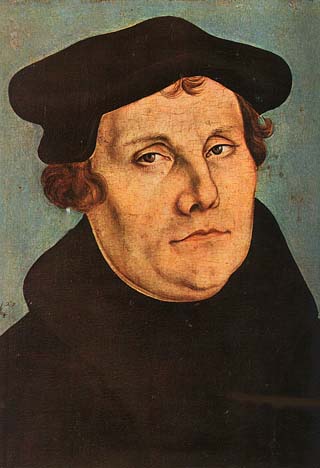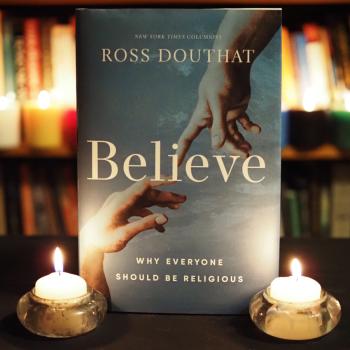 By Rakesh Peter Dass
By Rakesh Peter Dass
"the-o-lo-gian": one who reflects on God
In this regular column, we'll highlight leading theologians - past and present - who have been influential in shaping the values and beliefs of the Protestant tradition. This week: Martin Luther.
Martin Luther (1483-1546) was an Augustinian Roman Catholic monk who broke from the Roman Catholic Church on theological, liturgical, and political grounds. Luther came from an upwardly mobile family and his father (Hans Luther) sent him to study law at the University of Erfurt. A life-threatening event in his freshman year converted him to monkhood and in July 1505 he joined the Augustinian Cloister in Erfurt. He went on to become a doctor of Holy Scripture and served life-long as professor and pastor at Wittenberg. Wittenberg, population 2,500, was capital of the duchy of Saxony in northern Germany.
Luther broke from his Catholic background on the Church's use of indulgences, a practice that involved the Church's forgiveness of sins as a reward. Opposition to this "mathematics of salvation" underlies everything Luther said and did. Inspired by St. Paul's letter to the Romans, Luther believed that the forgiveness of sins is the result of God's gift and not human efforts (also called "justification by faith").
Sources: Martin Luther, Three Treatises (Minneapolis: Fortress Press, 1970); Carter Lindberg, The European Reformations (Malden, MA: Blackwell, 1996); and, Marin Luther's Basic Theological Writings, ed. Timothy F. Lull (Minneapolis: Fortress Press, 2005)
1/1/2000 5:00:00 AM




